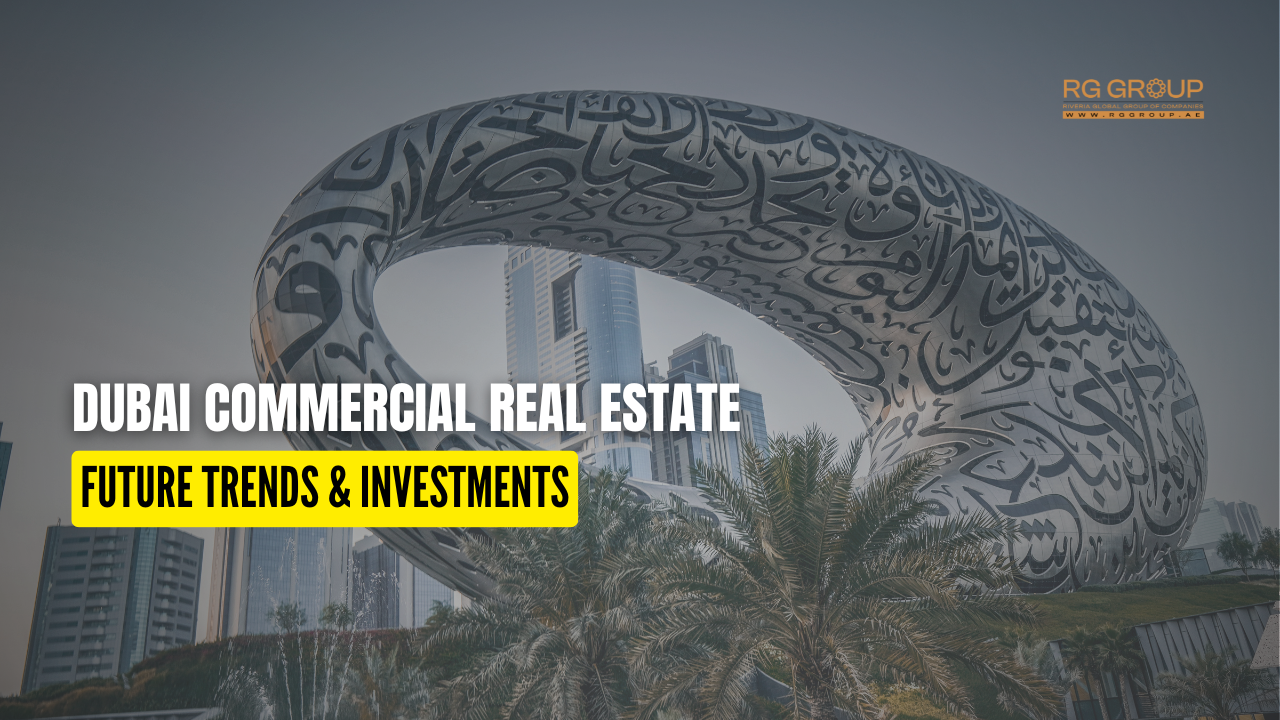Dubai’s commercial real estate sector has been on a remarkable growth trajectory, fueled by visionary policies, global investor confidence, and an ever-expanding business ecosystem. As the city continues to evolve into a global business hub, understanding the trends and investment imperatives shaping the future of Commercial Real Estate Investment in Dubai is crucial. This article delves into key market trends, investment opportunities, and strategic considerations for investors looking to capitalize on Dubai’s booming real estate market.
Dubai’s Commercial Real Estate Market: Emerging Trends
1. The Rise of Smart and Sustainable Buildings
Dubai is at the forefront of sustainable development, with initiatives such as the Dubai 2040 Urban Master Plan emphasizing eco-friendly and technologically advanced commercial spaces. Developers are increasingly incorporating smart building technologies, energy-efficient designs, and green certifications to align with global sustainability standards. This trend not only enhances operational efficiency but also attracts environmentally conscious tenants and investors.
2. Growth of Free Zones and Business Hubs
Dubai’s numerous free zones, such as Dubai International Financial Centre (DIFC), Dubai Silicon Oasis (DSO), and Jebel Ali Free Zone (JAFZA), continue to drive commercial real estate demand. These zones offer tax incentives, 100% foreign ownership, and business-friendly regulations, making them attractive to multinational corporations and startups alike. As the government continues to expand and enhance these business hubs, demand for office spaces and commercial facilities is set to rise.
3. Surging Demand for Flexible Workspaces
The global shift towards hybrid work models has increased demand for flexible office spaces in Dubai. Coworking spaces and serviced offices have become popular among entrepreneurs, freelancers, and corporations seeking cost-effective and adaptable work environments. Major providers like WeWork, Regus, and local operators are expanding their footprints, signaling a lasting trend in the commercial real estate market.
4. E-Commerce and Logistics Boom
The rapid growth of e-commerce has significantly impacted Dubai’s industrial and logistics real estate sector. With companies like Amazon and Noon expanding their operations, the demand for warehouses, distribution centers, and last-mile delivery hubs has surged. Investors are increasingly looking at industrial real estate as a lucrative opportunity, given Dubai’s strategic location and world-class infrastructure.
5. Hospitality and Retail Sector Revival
Dubai’s retail and hospitality sectors are experiencing a resurgence, driven by tourism growth, major global events, and increasing consumer spending. The city’s world-famous shopping malls, luxury hotels, and entertainment complexes continue to attract significant investments. Mixed-use developments that integrate retail, office, and residential components are gaining traction, offering diversified revenue streams for investors.
Investment Imperatives for Commercial Real Estate Investors
1. Partnering with a Reputable Real Estate Agency in Dubai
Navigating Dubai’s dynamic real estate market requires expertise and market insights. Partnering with a well-established real estate agency in Dubai can provide investors with access to prime properties, market trends, and legal guidance. These agencies play a crucial role in identifying high-potential investments and securing profitable deals.
2. Focusing on High-Growth Sectors
Investors should align their portfolios with high-growth sectors such as technology, logistics, healthcare, and hospitality. These industries are driving demand for commercial spaces, presenting lucrative opportunities for long-term gains. Understanding sector-specific trends and tenant needs is essential for making informed investment decisions.
3. Leveraging Government Initiatives and Incentives
Dubai’s government has implemented several initiatives to attract foreign investment in commercial real estate. Programs such as the Golden Visa, long-term business licenses, and reduced corporate taxes enhance Dubai’s appeal as a business and investment destination. To maximize returns, investors should explore these incentives.
4. Adopting a Long-Term Investment Strategy
While Dubai offers attractive short-term investment opportunities, a long-term approach yields sustainable returns. Investing in high-quality commercial properties in strategic locations ensures steady rental income and capital appreciation over time. Diversifying investments across different asset classes, such as office spaces, retail centers, and industrial properties, can further mitigate risks.
5. Keeping Up with Market Trends and Regulations
Dubai’s commercial real estate landscape is constantly evolving, with regulatory changes and market shifts impacting investment decisions. Staying informed about zoning laws, lease agreements, and emerging market trends is crucial. Engaging with industry experts and attending real estate expos and conferences can provide valuable insights.
Conclusion
The future of commercial real estate in Dubai is promising, with rapid advancements in sustainability, technology, and business infrastructure driving growth. As demand for smart offices, industrial properties, and mixed-use developments rises, investors must adapt to changing market dynamics. By partnering with a reliable real estate agency in Dubai, focusing on high-growth sectors, and leveraging government incentives, investors can unlock lucrative opportunities in this thriving market. Whether you are an experienced investor or exploring Dubai’s commercial real estate for the first time, now is the time to capitalize on its unmatched potential.

Leave a Reply